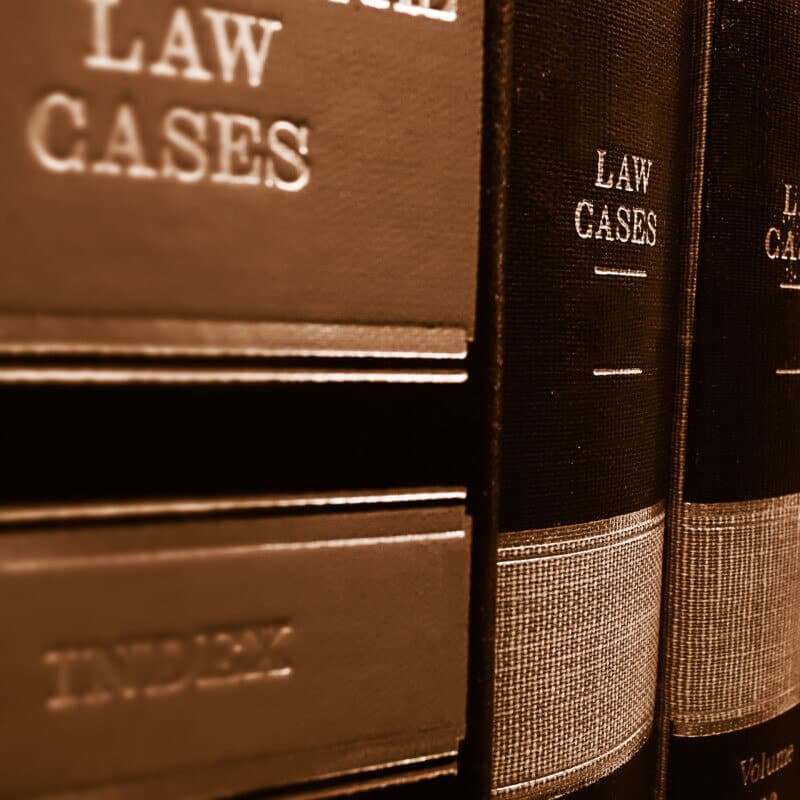Tackling Your Legal Issues
With 40 years of providing knowledgeable and experienced representation at all levels of the Canadian courts —including the Supreme Court of Canada. Our accomplished lawyers have longstanding reputations for providing highly attentive and professional client service, and for delivering impressive financial results.
Litigating Personal Injury
Putting the injured individual (the plaintiff) in the same situation they were in prior to the damage occurring is the main objective of personal injury law. Everybody is susceptible to accidents, no matter where they live. The carelessness of other people and organizations may still expose people to danger, regardless of how careful, safe, and prepared they are. Though there is a legal obligation for individuals in Ontario to owe others a duty of care, accidents (in its broadest sense) are inevitable. An injured party may be eligible to obtain a variety of types of compensation as part of a personal injury claim.
Economic Losses - What are they?
The term “economic loss” refers to any monetary loss brought on by harm (including lost wages or other employment-related benefits, medical expense loss, replacement service loss, loss resulting from a loss of life, funeral costs, and lost business or employment prospects), to the extent that recovery for such loss is permitted by applicable Federal law.

Non-economic Losses
Non-economic losses are more challenging to measure and prove (due to the fact that intangible ideas including pain and suffering or mental discomfort are hard to quantify.) Nonetheless, across many cases, particularly where accident victims have suffered severe injuries, the negative impacts of these losses may be considerably more severe than that of any measurable loss of money.
Non-economic damages are a type of compensation that takes into consideration an injured person’s pain, mental anguish, suffering, and other similar difficulties associated with an accident whereas economic damages are often meant to assist return a person to their previous state.
Contact Equity Law Firm LLP Today
Equity Law Firm LLP’s personal injury lawyers may be able to offer you the legal support you require if you were the victim of an incident brought on by someone else’s carelessness and suffered damages as a result. Our reputable and reliable lawyers are able to obtain financial compensation for the losses you have suffered as a result of the injuries you have received. These losses may be economic or non-economic in nature, depending on the circumstances surrounding your accident and the seriousness of your injuries.

Litigating Immigration Disputes
It’s already difficult to immigrate to the Canada or the United States, particularly if the government treats you unjustly. Fortunately, most poor choices can be overturned. Do not let an unfavorable decision or denial prevent you from entering either Canada or the U.S. At Equity Law Firm LLP, our skilled immigration lawyers at Equity Law Firm LLP can assist you with all facets of Canadian and American immigration, work permits, citizenship, and refugee matters. With regards to complicated immigration issues, such as those involving USCIS, the Department of State, and US Federal Courts, as well as appellate litigation involving things like sponsorship appeals, study permit appeals, permanent residence revocation, and much more.
Denied entry into Canada or the United States
Any of the following factors could result in your admission into Canada or the U.S. being refused or denied:
Security
- An authoritative individual has reason to think that you are, will be, or have engaged in conduct that infringes upon security.
- An authoritative individual has reason to think that you are, will be, or have engaged in conduct that infringes upon security.
- Participation in a group that promotes violence or terror, among other harmful activities
- Past transgressions of international or human rights
- Conducting surveillance on someone or collecting data with the intention of helping your country of origin
Criminal
- An offence outside of your Country must be equivalent to an offence committed in Canada or the U.S. in order to be considered for admission.
- Felony prosecutions for intoxicated driving such as DUI or DWI, reckless or dangerous driving, indecent assault, drag racing, obstructing a law enforcement officer, any narcotic offences, or fraud are common convictions that will likely prevent someone from entering Canada or the U.S.
Health
- Any health issues that could harm or threaten the well-being of citizens and/or permanent residents.
- A medical condition that, following treatment, would place an undue load on Canadian and American social services or healthcare.
Financial Grounds
- There are not enough resources available to help you and your household.
- You must demonstrate to an authoritative officer that you currently have adequate, non-social assistance and support strategies in place.
Misrepresentation
- Any significant information connected to a current application that is omitted or misrepresented becomes a basis for denial of entry. This is comprised of:
- Fraudulent documents
- Giving inaccurate relevant data or concealing relevant information
Temporary Residence vs. Permanent Residence
Temporary Residence
Numerous foreigners enter the country each year to work temporarily. Through the transmission of skills, these temporary foreign employees help Canada and the U.S.’s present labour shortfall. By initially acquiring permission to hire a foreign worker, companies aid in this process.
International students, foreign workers, and tourists who are lawfully present in Canada for a brief period of time, but are not Canadian citizens, are considered to have temporary residency. Temporary residency is not linked to citizenship, as one cannot convert from a temporary resident to a citizen without completing another procedure, whereas Permanent Residence (PR) is a prerequisite for Canadian citizenship.
There are various types of work permits when it comes to visiting as a temporary resident, such as; the NAFTA work permit, Intra-company transfer, Labour Market Impact Assessment, significant benefit work permit, live-in caregiver work permit, open work permit, off campus work permit, and post graduate work permit.
Permanent Residence
Without being a citizen, a person can obtain permanent residency (PR), which allows them to live and work there indefinitely, unlike a temporary resident. There are various different routes to take when wanting to attain a temporary residency, such as; express entry, family class sponsorship, economic class, business immigration, humanitarian and compassionate, provincial nominee programs, as well as live-in caregiver.
Many of the same privileges and obligations that apply to Canadian citizens also apply to Permanent Residents, including the freedom to live, work (with some limitations), and study anywhere in the Country. Permanent residents enjoy many of the same social benefits as Canadian citizens, such as becoming contributing members of the Canada Pension Plan and being covered by the universal health care system in their province or territory. Except for those that are only available to Canadian citizens, all Permanent Residents are entitled to the protections, rights, and freedoms outlined in the Canadian Charter of Rights and Freedoms.
Travelling
You can prove that you are a Canadian permanent resident by showing your PR card. When returning to Canada or the U.S. on a commercial vehicle, such as an airplane, boat, railway, or bus, you will be required to present your card and your passport upon arrival.
Before returning to Canada in a commercial vehicle, PRs who are going outside of Canada without a current PR card or who are not carrying one must apply for a permanent resident travel document.
If you are looking to attain temporary or permanent residence, it is crucial to hire an immigration lawyer to help guide you through the process as there are many documents involved and each case is different respective to your circumstances. Our team of immigration lawyers and legal personnel are well versed on all areas of immigration law and have successfully closed thousands of cases.

Contact Equity Law Firm LLP Today!
At Equity Law Firm LLP, our objectives are to assist clients in the most effective and efficient way possible in resolving their immigration problems, thus helping them secure an optimal and successful outcome to their case. At Equity Law Firm LLP, we have handled hundreds of immigration issues involving applications for Permits, Visas, denials, and much more. We have supported our clients through trying times & assisted them in creating a stronger application. We can assist you with creating your application and help facilitate and accelerate the otherwise hectic process.
Litigating Family Disputes
Our litigators at Equity Law Firm LLP have expertise in arguing courts at all levels to get the best outcome for their clients. If litigation is the best course of action for your case, we will file a court application on your behalf or represent you once you have received court papers.
What is Family Law Litigation?
The conventional approach of addressing family law conflicts is through litigation. Any disputes that need to be resolved need both parties to make their case in front of a judge. Any issue coming out of a separation or family crisis requiring quick action and involvement may require litigation if the circumstances impede resolution by agreement. After hearing arguments from both sides, the judge issues a ruling that specifies the rules that the parties must follow until further notice.

When Is Litigation the Most Appropriate Choice to Resolve a Family Dispute?
Court alternatives including collaborative family law, mediation, and arbitration are frequently quicker, less expensive, and produce more peaceful outcomes. However, there are times when going to court is the best or only way to resolve a dispute.
Conditions For Litigation
- A dispute over a child’s custody (decision-making authority) and access (parenting time) cannot be settled through negotiation, mediation, or the collaborative family law procedure;
- When one parent wishes to relocate the child without the other parent’s consent outside of the child’s customary neighbourhood or household;
- When a restraining order is necessary to protect the family’s safety;
- If a kid has been abducted or there is a threat that a child will be abducted;
- The other spouse refuses to divulge financial details required to resolve property, spousal support, and child support matters;
- There are property and child support disputes that can’t be settled any other way;
- Child or spousal support obligations that need to be enforced are unpaid;
- If an order for divorce is desired.
Contact Equity Law Firm LLP today for Experienced Representation in Family Litigation!
Family-related issues are never simple nor easy. A divorce or separation can have a significant impact on both your future and the future of your children. Our goal at Equity Law Firm LLP is to facilitate and support you during this process. You may rest easy knowing that your information is protected because our team places a high priority on maintaining client confidentiality. In addition to protecting your personal information, we address each case with the same empathy that we would value if the tables were turned. Our first objective is to save every customer time so they can get through this trying moment and resume living their life.

Litigating Real Estate Issues
Our skilled legal team at Equity Law Firm LLP can guide you through the house purchasing or selling process. With all the complexities involved, having knowledgeable legal representation can help the process go much more smoothly.
Why seek legal counsel for real estate disputes?
For both private investors and business entities, real estate is a significant financial investment. Due to this, any disagreement over the terms of a sale, property rights, or other breaches of contract may result in litigation. Legal representation must be deliberate and carried out with the client’s end goals in mind due to the seriousness of the issues involved.
We are aware that buying real estate is frequently a very personal decision, frequently reflecting significant life events like young families buying their first house or older couples deciding to downsize or relocate closer to their kids. As owners acquire retail sPrime or purchase property as part of a broader commercial project, it may also be a significant acquisition for many small and large firms. In order to handle the issue and comprehend the legal nuances, a committed and dependable professional must be on hand when a real estate acquisition unexpectedly turns complicated or troublesome.

What are the specific areas that a real estate litigation lawyer covers?
One of the key advantages of choosing Equity Law Firm LLP’s expertise is that our team of trustworthy lawyers are knowledgeable professionals who have worked extensively in a wide range of legal fields. When one party breaks the terms of the agreement, there may be a breach of contract in many real estate instances. On the other hand, a transaction could occasionally seem to go off without a hitch, but problems with the property may surface soon after. In any situation, Equity Law Firm LLP’s lawyers can provide the legal support you need to settle the conflict as quickly and successfully as possible. Our lawyers and legal staff are aware of all the potential hazards and subtleties of the real estate lawsuit procedure as a result of their knowledge and experience.
Reasons to Litigate in Real Estate Law
Legal concerns at the heart of real estate litigation
- Purchase and Sale agreements
- The buyer or seller failing to complete the transaction
- Seller’s false representation of the state of the property
- Unfavorable possession
- Enforcement of mortgages and powers of sale
- Deceptive conveyance
- Financing and lending
Contact Equity Law Firm LLP for you real estate litigation needs!
We are well-versed in handling the wide range of litigation-related problems that the real estate sector faces because to our extensive expertise and accumulated knowledge. In a range of real estate litigation matters, such as mortgage and tax foreclosures, eminent domain, mechanic’s liens, and title insurance claims, our lawyers have represented buyers, sellers, agents, brokers, governments, developers, lenders, landlords, tenants, investors, contractors, and title insurance companies.

Litigating Business and Personal Issues
The impending prospect of civil action is one of the numerous benefits and drawbacks of owning and running a business. Lawsuits can seriously harm your company’s finances and reputation.
Types of Business Litigation
Legal concerns covered by business litigation
- Contractual breaches,
- Employment issues,
- Real estate conflicts,
- Class lawsuits,
- Intellectual property challenges,
- Land use and zoning disputes,
- Conversion,
- Fraud,
- Disagreements over insurance coverage,
- Breach of fiduciary responsibility,
- Commercial debt collection,
- Product liability,
- Unlawful interference with contracts or business relationships
- Partnership disputes
- and shareholder repression are just a few examples.
However, any legal matter that your company faces may be included in a commercial lawsuit case. The best approach to comprehend these problems and how they can impact your company is to speak with one of Equity Law Firm LLP’s business litigation lawyers.
Shareholder disputes, Business Law, and Breaching the Corporate Veil
In Ontario, a company is a legal body. It is obligated to pay taxes and has the legal right to sue and be sued. It can also possess property. There are several reasons why people incorporate, including to protect their personal assets. A corporation is owned by its shareholders but is managed by its executives and directors. Directors may, under certain conditions, be held accountable for corporate actions.
To operate a firm, two or more parties frequently combine their respective abilities. The partners frequently commit both time and money in an effort to establish a prosperous business. Sometimes one individual serves as the financier and silent partner, contributing funds to run the company. The parties get together in the pursuit of starting a prosperous business.
Unfortunately, business “partners” must seek legal advice to discover how to end the relationship from one another, much like in divorce cases. The Business Corporations Act governs corporations in Ontario. This Act grants a variety of rights to shareholders, directors, and even creditors of corporations so they can work to correct any apparent wrongdoings. In some cases, a creditor may be able to “pierce the corporate veil” and hold specific individuals accountable for debts owed by the firm.
Contact Equity Law Firm LLP Today!
Legal disputes in business are complicated. It entails going over a plethora of documents, consulting with specialists, looking into the evidence, speaking with witnesses, creating and replying to a plethora of motions, and taking part in court procedures. Additionally, it may take years, particularly when significant sums of money or sophisticated issues are involved.
It is crucial to have a skilled commercial litigator on your side if you are involved in a business dispute. Our team of knowledgeable lawyers and professionals can help to simplify and speed up the otherwise difficult procedure.

Aboriginal Law
Our team is experienced in representing and consulting with Aboriginal business people; assisting them in dealing with their unique commercial and legal issues
Addressing Significant Challenges
Aboriginal business people face distinct challenges as a result of the provisions of the Indian Act. Recognizing the dramatic changes impacting Aboriginal commercial enterprises, our team provides experienced representation and consultation to assist Aboriginal business people in addressing these significant challenges.
Our team has experience in both representing and consulting with Aboriginal clients on commercial issues and related concerns.
Our Areas of Focus
The Indian Act
First Nations’ commercial activities are governed by The Indian Act: legislation which affords natives and reserves certain rights and protections but, in doing so, also imposes significant restrictions on their capacity to conduct business in Canada. Unfortunately, The Indian Act is, in many ways, out of date, and there exist numerous controversies associated with it.
The limitations and outdated nature of the act are readily apparent with respect to First Nations’ business activities—especially, for those natives living on reserve, and conducting business either on or off reserve.
Native business people are confronted with distinct challenges related to the securing of financing, as the existing legislation did not anticipate the changes that have dramatically altered the circumstances in which aboriginal commercial enterprises are now being conducted.
First Nation's Business'
With our commercial lawyers’ experience addressing business and financing issues, we offer First Nations peoples knowledgeable and effective representation in dealing with the unique issues and special circumstances they may face in conducting business. In addition, we provide consultation regarding First Nations’ business issues, practices, and disputes. Our lawyers have served as consultants to members of the Whitesand First Nation, as well as having represented business people who are members of the Mohawk Nation at Akwesasne.
Consultation and Representation
If you and your partner are unable to agree on a spousal support amount, you can go to court and have a judge determine.

Our Promise
Our civil and commercial litigation team is committed to providing informed representation to Indigenous Peoples, which recognizes the distinct legal challenges that they face. We listen to our clients attentively and respectfully in order to understand and honour their perspective on the situations and circumstances that confront them, and to provide our analysis and recommendations regarding their legal options accordingly. Our promise is to provide our clients with knowledgeable, skilled, and vigorous legal representation of their rights and interests.
Wills and Estates
The Estate and Trust Litigation group recognizes the uniquely personal nature and circumstances of issues in this area. This informs and guides our approach in advising clients and resolving disputes.
Being an estate trustee or executor can often be an overwhelming experience. Our team of lawyers advises and assists estate trustees and executors to address essential matters such as: the interpretation of a Will or Trust; applications for Certificate of Appointment of Estate Trustee with or without a Will; intestacy situations; the passing of an Estate Trustee’s accounts; and the distribution of beneficiaries’ assets.

Resolving your estate disputes
As the Canadian population ages, estate litigation is an area of legal practice which is growing in Ontario. Disputes regarding estates can arise in a variety of contexts including, but not restricted to: family members contesting a Will or Trust; filing a Notice of Objection related to a trustee dispute; litigating disputes involving trustees or executors; complex estate plans; changes in a testator’s Will; inadequate provision for dependents; filing dependents’ relief claims when an heir is excluded from a Will; executors’ fulfillment of duties or passing of accounts; and dispersion of sentimental properties.
Our Areas of Focus
Administration of estates or trusts
Equity Law Firm LLP supports clients with claims involving the administration of estates or trusts. Disputing such claims requires the advice and guidance of legal counsel who are knowledgeable about both the applicable legal issues, as well as the available procedural options. There are several issues that are commonly encountered in disputes over the administration of an estate or trust. They include: challenges to a Will, and the interpretation of a Will or trust; quantum meruit claims; capacity claims; dependants’ relief claims; the passing of an Estate Trustee’s accounts, and breach of trust by an Estate Trustee.
Challenging a Will
Regarding challenges to a Will, causes of dispute include:
- The testator’s capacity
- The existence of undue influence on the testator
- Failure to satisfy the formalities of execution in creating a Will
- The existence of provisions in a Will which conflict with Canadian public policy
Quantum Meruit Claims
Quantum meruit claims typically arise in estate litigation when the deceased had entered into an argument with an individual, promising for the performance of an action, but the payment was not made and was not addressed in the deceased’s Will.
Capacity Claims
Because of the dramatic increase in life expectancies and the “baby boom” demographic bulge, claims relating to capacity are increasingly frequent. The matter of capacity is complex—insofar as it applies to a number of different issues. Questions of capacity are applicable to such matters as: whether or not the deceased was capable of making a will; and whether or not the person had the capacity to manage property, appoint a power of attorney, make decisions regarding medical care, or marry. These issues, which may overlap, are further complicated by the fact that the applicable test for capacity is specific to the issue in dispute. For example, an individual may have the capacity to marry, but not to make medical decisions or to manage property.
With respect to “testamentary capacity”—the capacity to make a legally valid will—the individual must be “of sound mind, memory and understanding.” The validity of a will demands that the individual making it understood “the nature and quality of the act.” It must also be demonstrably clear that the will-maker understood who the beneficiaries of the will would be and what they would receive, the nature and extent of his or her property, and what those who are being excluded might reasonably claim.
Dependants' relief claims
Though a testator is generally accorded the right as to whom his or her property will be bequeathed, that right is not absolute. In Ontario, the Family Law Act recognizes that an individual has financial responsibilities to family members—including minor children, spouses, and parents. Regarding minor children, the Criminal Code stipulates that parents must provide their children with the necessaries of life. Further, in accordance with the statues of the Succession Law Reform Act, the estate of the deceased may be obligated to pay support, which has not been declared in the will, to spouses, parents, and children.
For dependants who have been disinherited, a number of factors bear consideration in determining the outcome of a claim for relief. The dependant’s age, physical and mental health, needs, and the proximity and duration of his or her relationship with the deceased are significant elements to be weighed in considering relief. In addition, the existence of any agreement that may have existed between the dependant and the deceased, as well as the existence of other claims are pertinent factors. When the dependant is a spouse (including common law relationships), the length of time cohabitating with the deceased, and a history of behaviour that is so egregious as to repudiate the relationship constitute relevant considerations.
Passing of an estate trustee's account
The Estate Trustee (the Executor and Estate Trustee) is charged with the responsibility of distributing the estate’s assets. Because the Estate Trustee is considered to be a fiduciary, the individual(s) fulfilling that function must establish a separate account for the deceased’s funds. In addition, the trustee has a duty to keep comprehensive record of the monies the estate has received, and the details of its expenses and the funds dispersed. The trustee must provide the beneficiaries with a proper accounting indicating the value of the estate, and whether or not he or she has satisfied all of the estates debts and distributed its assets properly. The guiding operative principle for the Estate Trustee is that all expenses incurred must demonstrably benefit the estate. Although court approval of the Estate Trustee’s accounts is not mandatory, the beneficiaries are entitled to demand of the trustee a full and complete accounting. Refusal or failure to do may lead the court to remove the Estate Trustee.
In Ontario, estate accounting and power of attorney accounting must adhere to a vey strict accounting protocol. Generally, disputes arising from the estate trustee’s accounting do not involve mismanagement or breach of fiduciary responsibility, but rather the trustee’s fees. The trustee is entitled to reasonable compensation for the administering an estate. Various factors—including the size and complexity of the estate, the demands made on the trustee in terms of time and the effort required to fulfill his or her duties responsibly, the skill and knowledge demonstrated, and the success of the trustee’s work on behalf of the estate—are taken into consideration when assessing the legitimacy of the fees the Estate Trustee is claiming. There are existing “tariffs”—guidelines for trustee’s fees—though the court may regard the existence of the aforementioned factors as providing the basis to approve fees that exceed the tariffs.
Breach of trust by an estate trustee
There are various circumstances that may lead to the removal of the Estate Trustee such as bankruptcy, illness, and being convicted of a crime. Further, if there are multiple trustees and there exists discord or animus between them, which is such that it may negatively impact the beneficiaries, the court may act to uphold the beneficiaries’ welfare by removing the trustees. Regarding breach of duties by an Estate Trustee, the court may rule that the trustee’s failure to meet the elevated duties of a fiduciary—that is, to act honestly and in good faith on behalf of the beneficiaries—warrants his or her removal. In those instances in which there exists a financial conflict of interest arising from the trustee’s previous relationship with the deceased or other circumstances that compromise the trustee’s capacity to act impartially, the court may rule that the trustee must be removed.
Wills, trusts, and power of attorney
Within the City of Toronto, mediation is a mandatory step in the resolution of disputes over Wills. Our knowledgeable and experienced litigators recognize that securing an effective and satisfactory settlement often involves being sensitive to potentially damaging familial or personal relationships. We attempt to customize our approach to dispute resolution by identifying not only the relevant legal issues, but also the pertinent personal circumstances and relationships involved. We provide our clients with an informed understanding of their legal rights and obligations, and outline their options and the associated costs.

Meet Our People
Thomas McGreggor
Principal Partner
Andrea Papadatos
Senior Lawyer
Alexander Voudouris
Lawyer & Senior Litigator
Thomas Pace
Senior Lawyer
Nina Chapnik
Lawyer
Elizabeth George
Lawyer
Grave Morse
Lawyer
Elaine Bright
Lawyer
Nancy Young
Lawyer
Advocating on your behalf
Whether it is in the form of contract disputes, tort claims, breaches of fiduciary duty, or corporate actions, Equity Law Firm LLP has a long-standing history of fulfilling our clients’ trust by vigorously and successfully advocating on their behalf. Although our lawyers and legal team have addressed a wide variety of civil litigation, our primary focus has been on estate disputes, commercial litigation matters, estate law, and actions involving Indigenous rights and business practices.
Our litigation team acts for entrepreneurs, small businesses, individuals, and corporations by providing a variety of legal services. We do so by: providing advice regarding legal strategy aimed at resolving or avoiding disputes efficiently; advocating on behalf of clients before the Courts or Tribunals; negotiating terms of settlement arising from Court proceedings; and enforcing the judgments of Courts or Tribunals in order to expedite the resolution of an action.
Our reputation as Litigators
Equity Law Firm LLP’s reputation in successfully representing our clients and their interests is well-established and speaks for itself. While our dedicated team of legal professionals will manage our clients’ interests with the utmost care and the respect they deserve, we also uphold our commitment to ensuring that we are continuously providing our clients with the best combination of care and advocacy our team can offer. Whether resolving a dispute requires effectively negotiating a settlement or pursing it before the Courts or an arbitrator, we service our clients by carefully analyzing their needs, strategizing, and vigorously advocating on their behalf.
Get in Touch
Call us now or fill out the form to discuss your case with an experienced legal professional.
Office Location
401 Bay St. Suite 1600, Toronto,
ON M5H 2Y4, Canada
Tel: +1 416 225 2598
Office Location
401 Bay St. Suite 1600, Toronto,
ON M5H 2Y4, Canada
Tel: +1 416 225 2598
Office Location
401 Bay St. Suite 1600,
Toronto, ON M5H 2Y4,
Tel: +1 416 225 2598
Office Location
401 Bay St. Suite 1600,
Toronto, ON M5H 2Y4,
Tel: +1 416 225 2598
